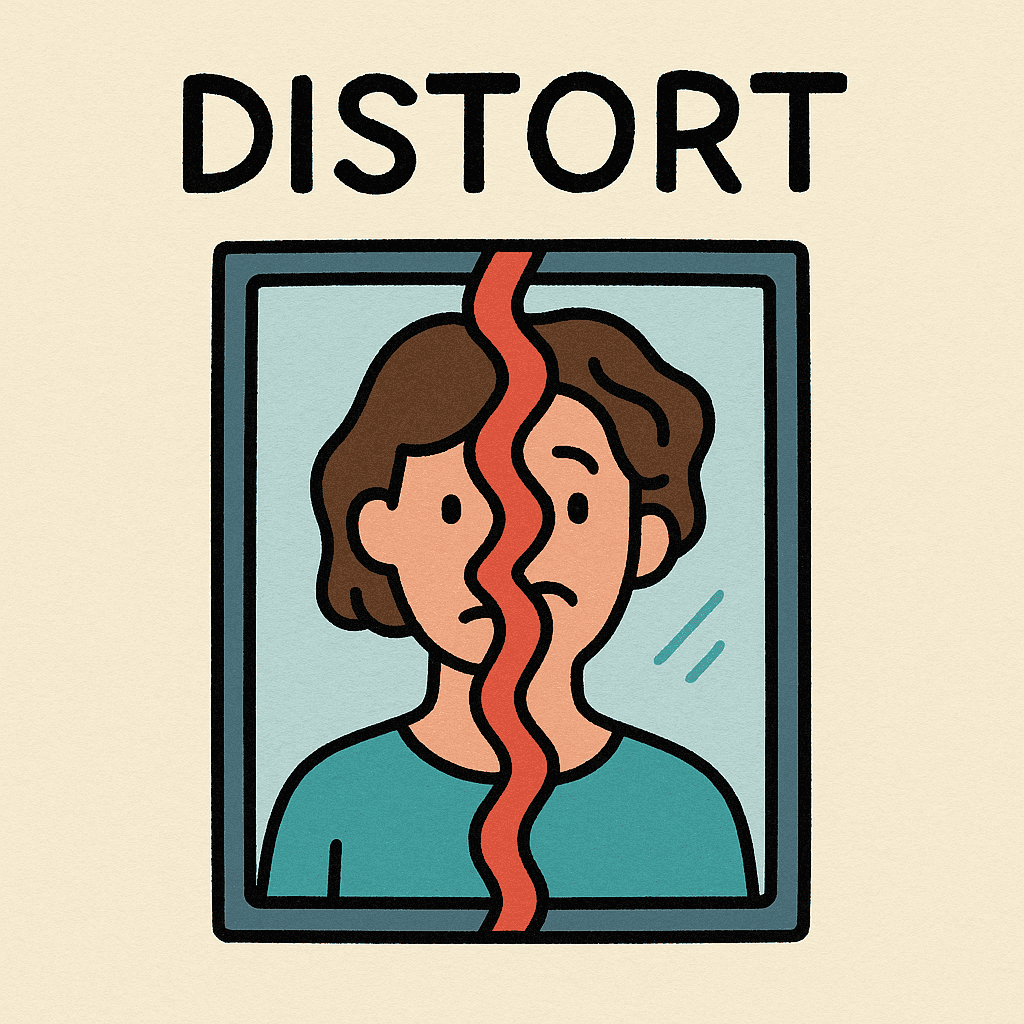Meaning
To distort means to twist, change, or misrepresent the true shape, sound, or meaning of something. It can refer to both physical deformation (e.g., bending an image or sound) and figurative distortion (e.g., misrepresenting facts or truth).
Grammar and Usage
-
Part of speech: Verb (transitive)
-
Forms: distort – distorted – distorted – distorting
-
Typical patterns:
- distort something
- distort the truth/facts/image/sound
- be distorted by something
Examples of usage:
- “The mirror distorted her reflection.”
- “The media distorted the facts to fit their narrative.”
Common Phrases
- distort the truth – to misrepresent or twist what is true
- distort reality – to create a false or misleading impression
- distort the image/sound – to make visual or audio quality unclear or inaccurate
Collocations
- verb + distort: deliberately distort, slightly distort, completely distort
- noun + distort: distortion of sound, distortion of facts, distortion of reality
- adjective + distortion: major distortion, slight distortion, visual distortion
Examples
- The loudspeaker distorted the sound during the concert.
- Heat can distort metal if it becomes too intense.
- He accused the journalist of distorting his words.
- The reflection in the water distorted her face.
- Social media often distorts our perception of other people’s lives.
- The photograph was distorted by the wide-angle lens.
- His memory of the event may have been distorted over time.
- The government denied distorting information about the crisis.
- The artist intentionally distorted the image for dramatic effect.
- Political bias can distort how news is reported.
Synonyms or Related
- twist
- warp
- misrepresent
- falsify
- deform
- pervert
Antonym
- clarify
- straighten
- represent accurately
- correct
